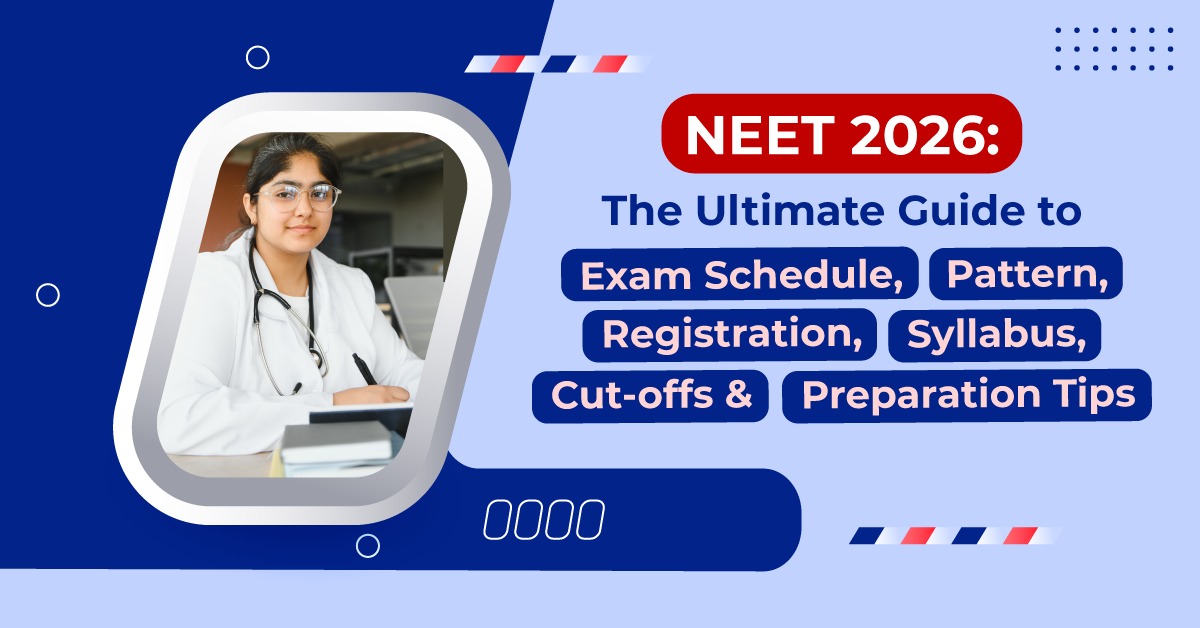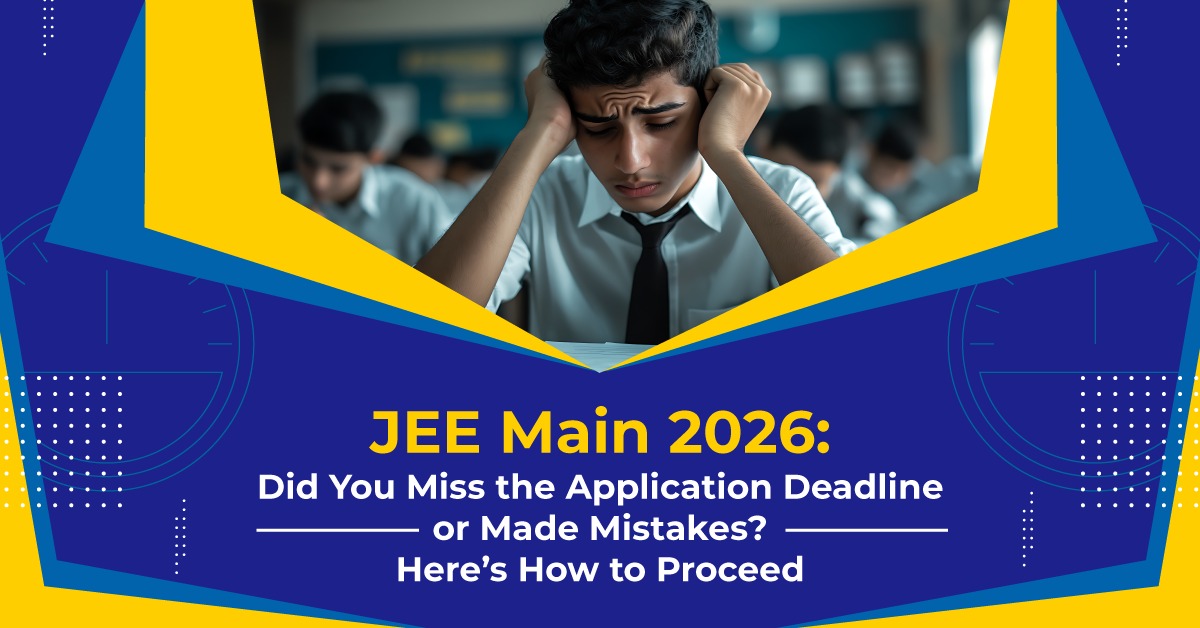
Mock tests can be your secret weapon for JEE Main 2026 — but just sitting for a test isn’t enough. The real power comes after the test, when you dig into your mistakes and learn from them. Every wrong answer is not a failure; it’s a guide pointing you toward the exact areas where your preparation needs a boost. Let’s explore how to turn mock test mistakes into stepping stones toward success.
Why Analysing Mock Tests Matters
Every error in your mock test carries a story:
- A small calculation slip in Maths? That’s a signal to slow down and double-check.
- A Physics question you didn’t fully understand? That highlights a gap in your conceptual clarity.
Mock tests don’t just check your knowledge — they simulate real exam conditions. They help you:
- Measure your speed and accuracy under pressure
- Identify strengths and weak points in each subject
- Practice managing time effectively
- Stay calm and composed during the exam
Simply taking tests without analyzing them is like practicing cricket without watching your replay. Growth comes from understanding why you went wrong and fixing it.
The 24-Hour Rule
A game-changing habit: analyze each mock test within 24 hours. Your thought process is still fresh, so it’s easier to pinpoint why you picked the wrong answer, skipped a question, or made a careless mistake. Waiting longer makes insights fade. Quick analysis helps you trace thinking patterns and correct them while they’re still clear in your mind.
The Three-Bucket Method for Mistakes
Not all mistakes are equal. Categorize your errors:
- Silly Mistakes – Errors due to oversight or misreading. They can cost 20–30 marks on average!
- Conceptual Gaps – Wrong answers caused by unclear fundamentals. Focused revision is needed here.
- Complete Blanks – Questions you couldn’t attempt at all. They show topics requiring fresh study.
Maintain a mistake notebook or digital log. Write the question, note your wrong reasoning, and record the correct approach. Over time, this becomes your personal GPS for avoiding repeated errors.
Deep-Dive: Question by Question
After every mock, ask yourself:
- Did I misunderstand the question?
- Was my method wrong or just the calculation?
- Did time pressure make me guess randomly?
- Have I made this mistake before?
Document both the solution and your wrong thinking pattern. This reflection builds self-awareness and ensures you don’t repeat the same mistakes.
Recognize Patterns and Gain an Edge
After 3 – 4 mocks, patterns emerge. Maybe you lose accuracy in the last 30 minutes, or consistently struggle with Thermodynamics or Coordination Chemistry. Recognizing these trends helps you focus your preparation on the areas that truly matter, instead of revising everything blindly.
Time Management: The Hidden Game-Changer
Success in JEE Main isn’t just about knowing the content; it’s about using your time wisely. Track your time per question and per section. Spending 8 minutes on a 4-mark question while leaving easy Chemistry ones? That’s a strategy problem, not a knowledge one.
A good benchmark: roughly 1 minute per mark. Use mock tests to train your internal clock and balance speed with accuracy. Alternate rounds — easy questions first, then moderate, then difficult — to maximize score without getting stuck.
Practicing Previous Years’ Papers
Mock tests are vital, but don’t overlook previous years’ JEE Main papers:
- They reveal recurring patterns and tricky concepts that the exam favors.
- They give you realistic practice under timed conditions.
- They build confidence, as you become familiar with the style and difficulty level of real questions.
Combine mock tests with previous papers to create a preparation routine that’s both strategic and efficient. Dress rehearsals (mock tests) plus masterclasses (past papers) = readiness that’s hard to beat.
The Correction–Revision Cycle
Most aspirants analyse mistakes but don’t reinforce the correct method. For each error:
- Solve 4–5 similar problems immediately
- Make flashcards for formulas or tricky concepts
- Review these short notes regularly
This loop of correction and revision strengthens memory and ensures mistakes aren’t repeated.
Treat Every Test Like the Real Exam
Simulate real exam conditions:
- Sit for full 3-hour sessions
- Attempt the test in the official 9–12 AM slot
- Minimize distractions and eat light
This prepares both your mind and body for the actual exam, turning anxiety into confidence.
Turning Analysis into Action
Mock tests aren’t about high scores alone — they’re about continuous improvement. Review your mistake log before each test. The aspirants who succeed aren’t the ones who make no mistakes; they’re the ones who learn from every single one.
The Takeaway
Books and lectures give knowledge, but mock tests and previous papers turn that knowledge into performance. They sharpen focus, build exam temperament, and strengthen strategy.
- Take every mock test seriously
- Analyze within 24 hours
- Maintain a detailed mistake log
- Revise through errors immediately
- Practice previous years’ papers alongside mocks
- Stay consistent, even if scores fluctuate
Do this, and when exam day comes, you won’t panic — because you’ve already mastered the process through dozens of “mini JEE Main”
JEE Main 2026 Aspirants – Are you looking to deliver your peak performance in JEE Main 2026. Well, this blog is all about imbibing & following the right strategy to come out on Top. Well, there is one ammo which will power your performance in just 3 months and that is VMC’s Test Series for JEE Main (& JEE Advanced) 2026 for XII Pass students. It includes original, high-quality problems crafted to test fundamental concepts across a range of difficulty levels. Expert-led sessions in Physics, Chemistry, and Mathematics provide in-depth discussions on subject topics, multiple problem-solving methods, strategies to enhance accuracy and strike rates, and effective time management techniques for both preparation and exams. So, don’t wait, just visit VMC Online JEE Test Series.
And enrol in this Test Series and get set to conquer JEE 2026.
FAQs About JEE Main 2026 Mock Tests
Q1. How many mock tests should I take before JEE Main?
15–20 well-analyzed full-length mocks are ideal. Quality matters more than quantity.
Q2. When should I analyze my test?
Within 24 hours, while your thought process is fresh.
Q3. How can I reduce silly mistakes?
Slow down, underline key terms, double-check calculations, and maintain a silly mistake tracker.
Q4. Which platform is best for online mock tests?
Choose reliable, JEE-pattern-based platforms like VMC Online Mock Tests.
Q5. What’s the ideal time strategy?
Attempt easy questions first, then moderate, then difficult. Balance speed with accuracy.
Q6. How do I use results to improve?
Analyze mistakes, revise concepts immediately, solve similar questions, and review your mistake log before each new test.







0 Comments